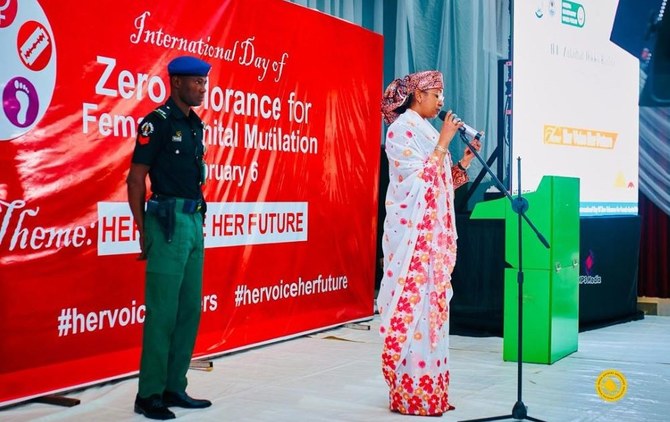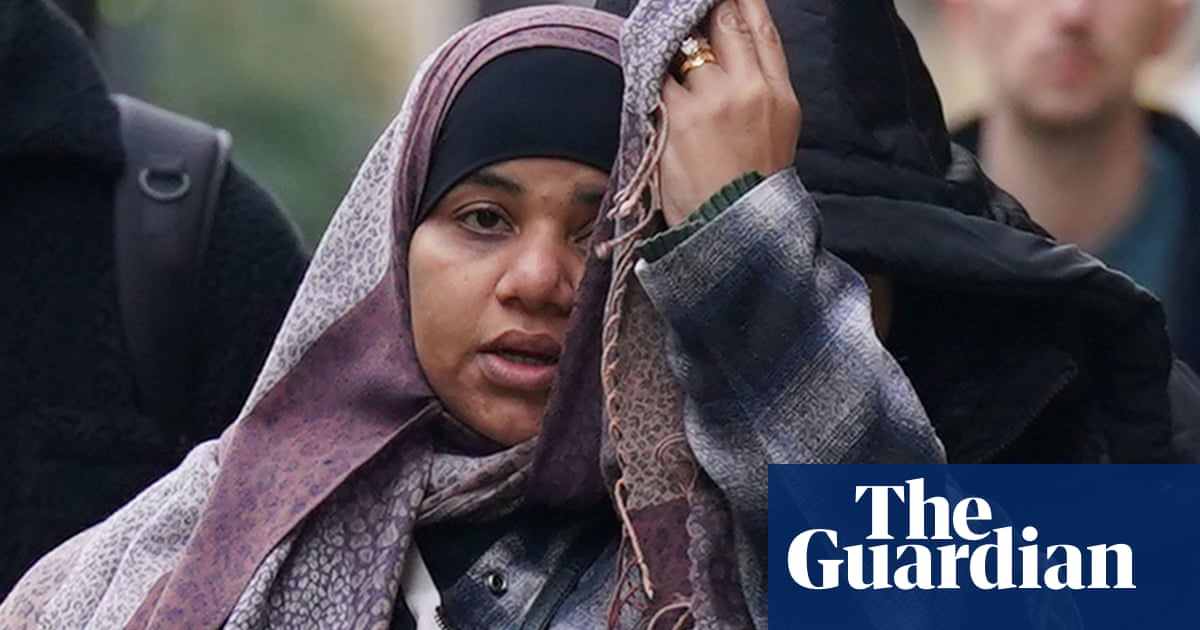
Thousands-strong caravan of campaigners will start in Mauritania, end in Djibouti
In Somalia, an estimated 98% of women have undergone genital mutilation
LONDON: African survivors of female genital mutilation are set to lead a thousands-strong caravan of campaigners around the continent in a bid to end the practice, The Guardian reported on Wednesday.
Grassroots activists and organization officials will travel about 12,000 km across Africa, holding events and media outreach campaigns in areas where FGM is commonly practiced.
The #FrontlineEndingFGM coalition will visit 20 countries with convoys that will attempt to challenge the practice of FGM using information tailored to the local area.
Ayo Bello-Awodoyin, who leads the Global Media Campaign to end FGM in Nigeria, said: “We are shifting the power. Grassroots activists who have been doing the work but have not really had the backing to do it at this level, will now have the opportunity to come out en masse across different countries and lead these efforts.”
The caravan is set to begin its journey in June, starting in Mauritania in Africa’s northwest. It is expected to reach Djibouti on the Horn of Africa by mid-2026.
Though FGM has declined across the continent — in some places rapidly — the practice continues despite being illegal in many African countries, which activists blame on poor enforcement. In Somalia, the Gambia, Mali and Guinea, the practice is still highly supported by the public.
Bello-Awodoyin said: “The major issue is the effectiveness of laws — if we say that FGM is a punishable offense but there’s no prosecution, it becomes a big challenge.”
According to activists, a major impediment to eradication of the practice are regional beliefs that FGM is a religious mandate, including in Somalia, where an estimated 98 percent of women have undergone cutting.
Anti-FGM messaging to local populations must be tailored to the specific cultural and religious beliefs of regions across Africa, activists have said.
Ifrah Ahmed, an FGM survivor and founder of the Ifrah foundation, said: “It will have a huge impact for the community to hear a religious leader say that it’s not a religious practice, but a cultural one.”
#FrontlineEndingFGM will also travel to rural areas housing internally displaced people, who will be given information via documentaries on the health consequences of FGM.
The practice can lead to childbirth complications, trauma, menstrual and sexual issues, and in some cases death.
Ahmed said: “When they watch these documentaries for themselves, it will reach them differently. It is one thing to tell them that young girls are dying from FGM, it’s another for them to see it.”
Previous campaigns to eradicate the practice have reported promising results. Kenya’s Tana River region recorded an 84 percent decline in the worst form of FGM following a three-year broadcast project led by local religious leaders.
Bello-Awodoyin said: “I hope that people will learn how harmful FGM is … and that survivors and leaders of grassroots organisations will not stop fighting.”












